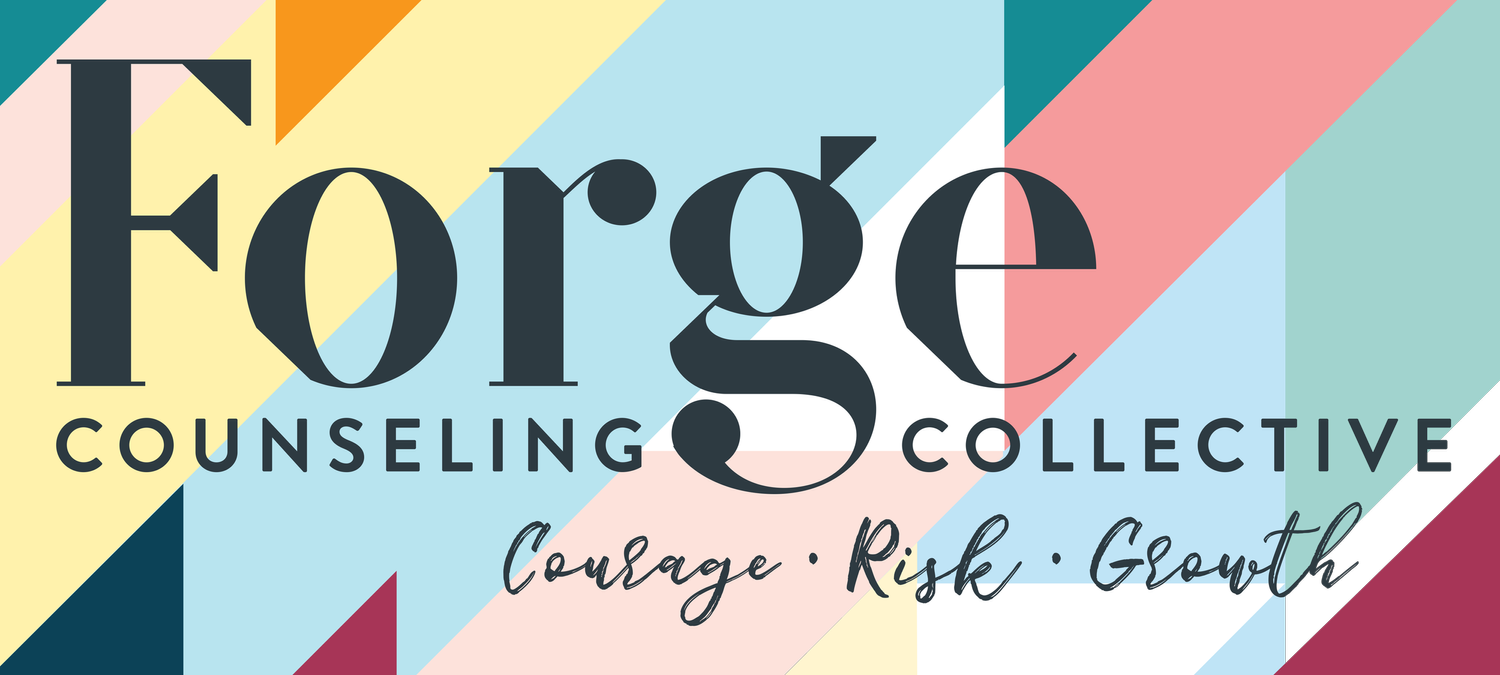
Ketamine-Assisted Psychotherapy
What is Ketamine-Assisted Psychotherapy?
Ketamine-Assisted Psychotherapy (KAP) is a unique modality in which ketamine complements the therapeutic process to help clients experience more frequent breakthroughs and sustained improvement in symptoms.
How it works
Ketamine is a psychedelic medicine that acts on several neuroreceptors in the brain to enhance mood and increase neuroplasticity. Thus, clients often experience antidepressant effects and have an easier time making changes in their lives. KAP is ideal for clients who are feeling stuck or would like assistance to maximize or access the benefits of mental health therapy.
For more information, see Journey Clinical’s webpage.
KAP @ Forge
Learn about the benefits of Ketamine-Assisted Psychotherapy and what to expect when you come for KAP sessions at Forge with Angie Hanson, LPCC.
FAQs
-
Ketamine has shown promising results for folks with depressive disorders, anxiety disorders, eating disorders, trauma, substance use disorders, bipolar disorders, body dysmorphia, etc. Schedule a consult to see if ketamine is the right fit for you.
-
Yes! Ketamine has been used in clinical settings since the 1960s as an anesthetic, pain killer, and more recently, as a treatment for depression. It was approved by the FDA in 1970 as an anesthetic and pain killer and as a treatment for depression in 2019. It is still considered off-label for psychotherapy (that is, efforts are still underway to legitimize this as treatment in a therapy setting, but outcomes are promising). Ketamine is also used in hospitals as an emergency intervention for acute suicidality, as it seems to be especially useful in decreasing suicidal ideation.
No ketamine allergy has ever been reported or studied as far as we are aware, but Journey Clinical advises caution here because it is not impossible for this to occur.
Ketamine has been abused as a recreational drug due to its psychedelic effects, and it does have addictive qualities. For that reason, KAP clients must adhere to the treatment plan set by practitioners to avoid dependence. For example, typical ketamine dosing sessions are planned several days to weeks apart. The risk of developing an addictive relationship with ketamine is likely when clients abuse ketamine and take it daily, rather than following the guidance of their prescriber.
Lastly, ketamine inhibits some degree of function even after the acute effects wear off. Therefore, clients must agree not to operate motor vehicles, be in bodies of water, or participate in any other high-risk activitiy for 12 hours after the dosing session.
-
Great question! Forge Counseling Collective partners with Journey Clinical's medical team for all KAP clients. Journey Clinical is responsible for determining MEDICAL eligibility, establishing treatment plans, prescribing medicine, and tracking outcomes. They will handle the distribution of ketamine to clients for sessions (e.g., mail or pharmacy). Clients are responsible for keeping track of the ketamine once they receive it and taking it only as prescribed during sessions with the KAP therapist.
-
KAP treatment includes preparation sessions, dosing sessions, and integration sessions. A minimum of 3 preparation sessions occur before the initial dosing session. During preparation, we will thoroughly discuss goals, expectations, intentions, consent, and any other concerns that may arise. Dosing sessions are scheduled for three hours, while the preparation and integration sessions are for 50-60 minutes. During our dosing sessions, we will have time to settle into the space and clarify intentions, as well as address any remaining concerns before taking the medicine and entering into a “non-ordinary state of consciousness” for around an hour, then slowly ease back into reality. 1-4 Integration sessions will be scheduled between dosing sessions, depending on the course of treatment. During integration, we will process any insights found from the dosing session and capitalize on the mood-enhancing and neuroplastic capacities that come from the medicine in the following days.
It is common for folks to have 8 dosing sessions in a course of treatment, but this can be somewhat customizable to fit your needs.
-
You have the option to participate in your KAP sessions from our cozy Colorado Springs office or the comfort of your own space via telehealth. Regardless of your choice, your therapist will work with you to create a safe and peaceful environment for your experience.
-
The cost of Ketamine-Assisted Psychotherapy depends on your unique therapeutic goals, treatment plan, and insurance. You can expect for treatment to start at $950 for the first two sessions. Please inquire for more information.
Unfortunately, Medicaid clients are not eligible for this service at this time.
-
This depends on your insurance provider. It is possible that insurance may cover some portions of treatment, but not all. Please contact us for more information.

